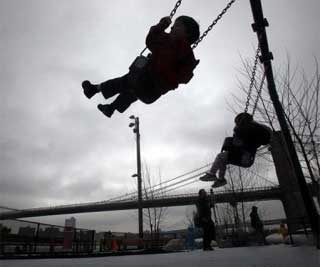|
National Association of Adult Survivors of Child Abuse
National Association of Adult Survivors of Child Abuse
~~~~~~~~~~~~~~~~~~~~~~~~~~~~~~~~~~~~~~~~~~~~~~
NAASCA Highlights
EDITOR'S NOTE: Occasionally we bring you articles from local newspapers, web sites and other sources that constitute but a small percentage of the information available to those who are interested in the issues of child abuse and recovery from it.
We also present original articles we hope will inform the community ... |
HOME
why we started this site
|
RECOVERY
together we can heal
|
RESOURCES
help stop child abuse
|
ABOUT
a little about us
|
CONTACT
join us, get involved
|
.
 |
|
Child Sexual Abuse: It's Bigger Than Penn State
by Alexis Lauricella, Ph.D.
Founder of PlayLearnParent.com
All parents want to protect their children. That's why we read baby books when we are pregnant. That's why we take babies to doctor's appointments monthly when they are infants, not just when we think something is wrong. That's why we screw TVs, dressers and bookcases to the wall and why we put up baby gates at the top of the stairs. Parents want to protect their children and they will do whatever it takes to keep them safe.
So why aren't parents protecting their children from child sexual abuse? It's not that parents aren't trying to protect their children, but most parents don't know enough about child sexual abuse and who abusers are to adequately protect their children. Here are some basic facts that all parents should be aware of:
|
First, parents need to know that child sexual abuse happens and it happens WAY too frequently. While statistics are difficult to compile because children don't always report and few abusers are accused or convicted of a crime, reports indicate that between 24 and 37 percent of female children and 27 precent to 30 percent of male children have been victims of sexual abuse (Salter 2003, page 10). Note as a comparison, the rates of Autism are about 1 percent (CDC website, n.d.).
Second, people who sexually abuse children don't look any different from people who don't sexually abuse children. This is the very scary part. I wish there some sort of warning photo that we could put out there to help parents know who to protect their children from, but as we have seen in the media all too often, these guys (statistically, they are much more likely to be men) look just like anyone else.
Third, people who sexually abuse children are most often people that you and your child know and have a relationship with. The cases of strangers grabbing a child and molesting him are rare. Unfortunately, the abusers tend to be very personable and find ways of connecting and forming relationships with both the child and the parent(s) so that when an accusation from a child happens, parents are often unlikely to believe the child.
As parents, we need to be aware of dangers that surround our children. Bikes are dangerous, so we insist (and many states require) that our children wear helmets, and car accidents can be deadly so children are always securely buckled into their car seat. Does your child fall off her bike every time she rides? Do you smash your car every time you drive? Thankfully, no. But do we still make our kids wear helmets and buckle their seat belts every time, just in case? While there is no concrete object like a helmet to protect our children from child molesters, there are things that parents can do to help protect their children all of the time, even if we don't think it's going to happen to our child. Here are some tips:
- Teach your children about basic sexual education. Children should know the parts of their body and that people shouldn't touch them in their private areas.
- Work to increase communication and openness in your house with your children. Talk to children about things in your day that made you feel sad or uncomfortable and encourage your children to do the same. Even if these things are very small events, like I felt sad today because Sarah wouldn't play with me, these discussions help to teach your child that she can talk about how she is feeling and what happened each day.
- Get to know all of the adults in your child's life: soccer coaches, priests, piano teachers, doctors, friends' parents, etc. Introduce yourself to them, speak with them, learn about their professions, backgrounds, families, etc. While pedophiles can be anyone and can come from any background, by showing adults that you are involved and active in your child's life you are helping to indicate to any potential pedophile that your child will not be an easy target.
- Know some general signs and odd behaviors to look for:
1) Men who are overly involved in youth activities and do not have children of their own or relationships with other adults.
2) Be aware of situations or experiences that may be attractive for pedophiles: Churches, camps, Boy Scout overnight trips, etc. Not every man involved in these organizations is a pedophile, but be careful and cautious and stick to your gut feelings.
3) As we saw with the recent Penn State sex scandal, people that give toys, money, or gifts to young children unnecessarily are strange. Pedophiles try to win over their victims and create relationships with them, presents and gifts help to win these children over.
|
Rates of child sexual abuse are unacceptably high. As scary as this is for parents to think about, we owe it our children to be aware of the rates of child sexual abuse, some of the signs pedophiles display, and some ways in which we can increase protection for our children. Below are some resources that ALL parents should read.
~~~~~~~~~~~~~~~~~~~~~~~~~
http://www.huffingtonpost.com/alexis-lauricella/child-sexual-abuse-its-bi_b_1134313.html
. |
HOME
why we started this site |
|
|
|
|
|
|